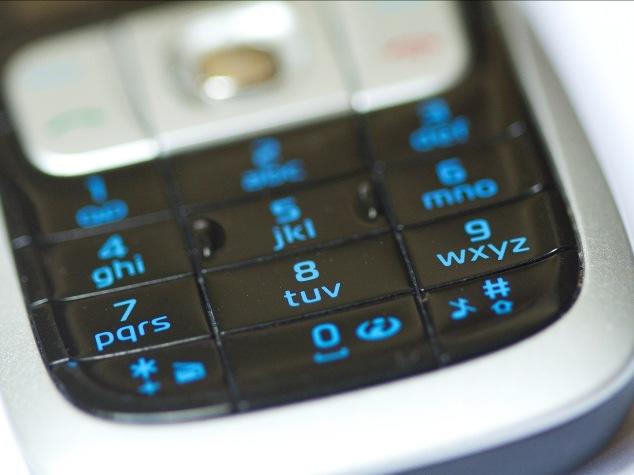
Section Branding
Header Content
Regulators Vote On Phone Fee
Primary Content

State utility regulators will vote Tuesday on whether to charge low-income Georgians $5 dollars a month for a federal program that provides them with free cell-phone service.
Some of those people say the fee will force them to make tough decisions about their budgets.
“That would mean I’d be making the choice between one of my medications, my across-the-counter medications, or I would be making a choice off of my food budget, which is very tight,” said Tim Hollobaugh, a disabled Air Force veteran who lives in Augusta.
Hollobaugh is confined to a wheelchair and lives on a fixed income. He said his phone gives him freedom to leave his house, knowing he can call for help if he has any problems. It also keeps him connected to his doctors.
“When you’re out there alone, [if] your wheelchair quits for some reason, these power chairs, you’re stuck,” he said. “If you can’t call anybody by phone, you could be sitting there for an hour or two before anybody stops to see how you’re doing or if they can help you.”
Hollobaugh said he budgets down to the penny every month.
“If I could afford a different phone, of course I’d be using that,” he said.
Retired paralegal Nancy Amos budgets similarly. The Emerson resident has been raising her two grandchildren on Social Security and food stamps. She said her phone is essential because her granddaughter has a severe allergy to a chemical found in many insecticides.
“She goes into anaphylactic shock,” Amos said. “They have been able to reach me when this happens. For that very reason, it’s an emergency phone for me.”
Amos said she was driving early in the morning on Interstate 75 south of Atlanta recently when her tire blew. She was able to call for help using her Lifeline phone instead of walking a mile or more to the nearest exit.
About 700,000 Georgians had the free phones as of August, down from more than a million a year ago.
Public Service Commissioner Doug Everett, who proposed the fee, said it is an attempt to curb fraud and abuse of the federal subsidy for the phones and to discourage customers from having multiple Lifeline cell phone accounts.
In hearings last week, Everett said the companies that offer the service are also at fault.
“One of the biggest problems we got here is not with the consumer. The biggest problem we got with is the telephone companies. The telephone companies [are] giving out phones that are not supposed to be given out,” he said.
Everett said he has heard stories where phone company representatives sign up customers for the free phones even if they are ineligible or already have a phone because the reps want the commission for enrolling customers.
“I can take any one of you out on lunch break and show you tents all over town where they’re trying to give away these phones,” said PSC Chairman Chuck Eaton at last week’s hearings. “I know there are some good apples in the group, but there were a lot of bad apples that brought this on themselves.”
The commission’s proposed rule requires companies to offer 500 free minutes if they don’t want to charge the $5 fee. But many say they can’t afford to give away that much time.
Companies get $9.25 a month to subsidize the service. The money comes from the Universal Service Fund, a charge on every phone customer’s bill.
“Each provider out there would be, essentially, under water on that account,” said Brian Lisle, president of Telrite Corp., which offers service as Life Wireless. “I cannot, on a prolonged basis, give the service away for free and lose money at the same time.”
The PSC earlier this year approved the $5 fee, but it did not go into effect while commissioners weighed legal questions about the requirement.
Tags: PSC, Doug Everett, Chuck Eaton, cell phone, Lifeline, subsidized phone service, subsidy, tim hollobaugh, nancy amos, cell phone fee, brian lisle
